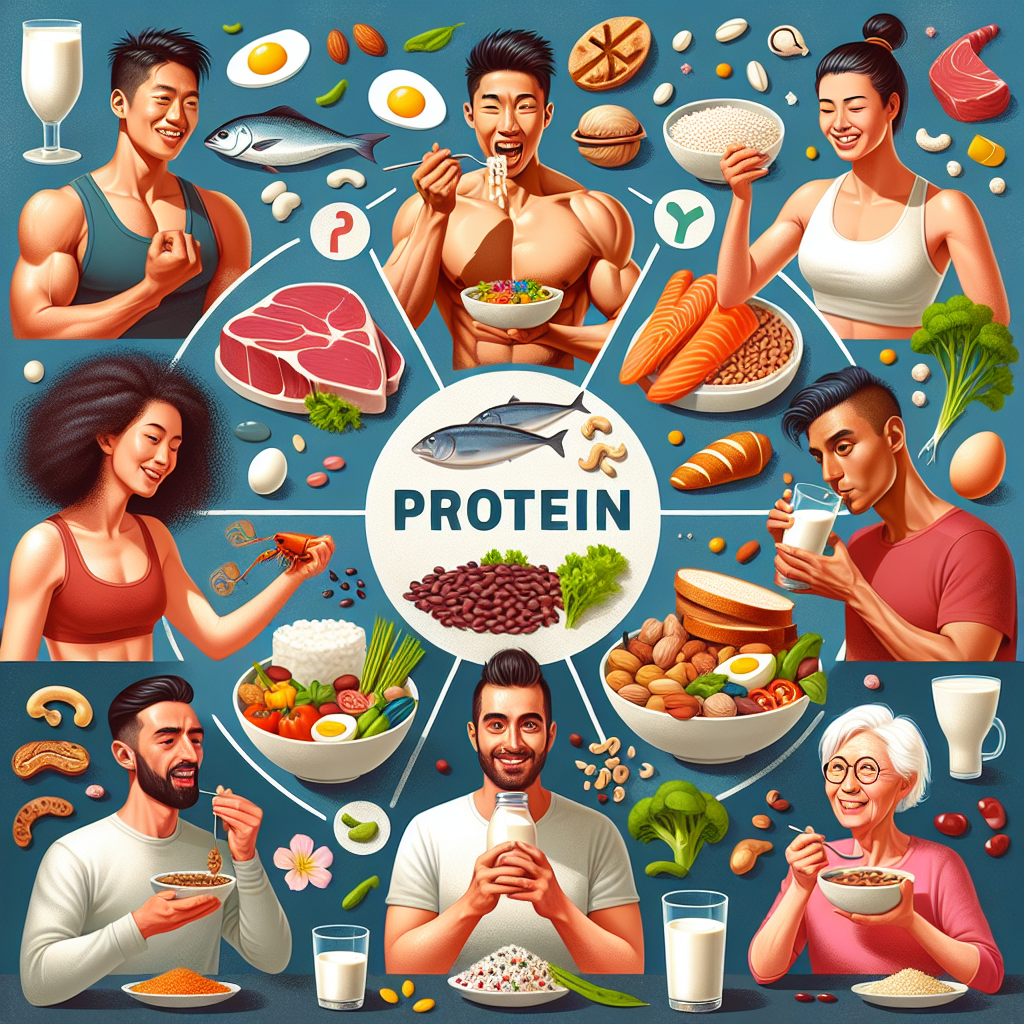Nourishing Your Body: The Essential Role of Protein in a Balanced Diet
In a world increasingly focused on health consciousness, an intriguing fact stands out: protein, whether derived from meat, tofu, or plant-based sources, plays a crucial role in maintaining our body’s functionality. This essential macronutrient helps regulate hormones, build muscles, and support overall well-being, making it fundamental to a balanced diet.
For many, targeting around 100 grams of protein daily can be a practical goal. However, individual protein needs vary considerably based on health, age, and activity level. Consulting with a dietician or doctor can offer tailored insights into one’s specific dietary requirements. Those curious can utilize a handy calculator provided by the US Department of Agriculture to determine their basic protein needs.
What Does 100 Grams of Protein Look Like?
To visualize hitting this protein benchmark, let’s take a look at simple dietary samples across various lifestyles—omnivores, vegetarians, and vegans.
For omnivores, achieving 100 grams can be straightforward. Here’s a sample day’s worth of meals:
- Four eggs (24 grams)
- A can of tuna (27 grams)
- Three beef meatballs (15 grams)
- Turkey bacon (10 grams)
- Turkey breast (24 grams)
This meal plan totals exactly 100 grams—demonstrating just how readily protein can be integrated into an omnivore’s diet.
Vegetarians, too, find accessing protein not overly challenging with a well-planned menu that could include:
- Four eggs (24 grams)
- Rolled oats (5 grams)
- Snack cheese (10 grams)
- Greek yogurt (15 grams)
- Peanut butter (7 grams)
And several other protein-rich foods, reaching a satisfying 99 grams.
Vegan Diet and Protein Diversity
The vegan approach, though more complex in protein sourcing, certainly offers viable options to meet dietary goals. An example vegan platter might contain:
- Rolled oats (5 grams)
- Nuts (5 grams)
- A plant-based protein shake (20 grams)
- Chia seeds (10 grams)
Reaching about 79 grams just from these items, confirming how thoughtful combinations can flexibly adjust to ensure protein adequacy throughout the day.
Through these examples, it is evident that protein can be acquired abundantly and diverse—reflecting the biblical principle of stewardship over our bodies as temples of the Holy Spirit (1 Corinthians 6:19-20). Just as we nourish our bodies physically, there’s a deeper spiritual call to nourish the soul.
Finding Balance and Encouragement
From a spiritual perspective, the importance of being mindful of our health and dietary choices aligns with positive biblical principles. In Matthew 6:25, Jesus reminds us not to be anxious about our needs—encouraging us to trust in God’s provision while also actively caring for ourselves.
As you embark on your dietary journey, take this as an invitation to reflect not only on what you put on your plate but also on how you can nourish your spiritual life. Create space for prayer, gratitude, and awareness in your daily routines, aligning your physical health with your spiritual growth.
Encouraging Reflection
In today’s fast-paced world, it’s easy to see dietary choices as a mundane task, but they serve as an opportunity for reflection and growth. Consider how you can incorporate not just nutrition but also spiritual nourishment into your life. After all, as we strive to care for our bodies, let us also attend to our souls—understanding that holistic health encompasses both our physical and spiritual well-being.
Embrace each meal as a chance to reconnect with the deeper teachings that call us to live well, in body and spirit.
Explore and dig up answers yourself with our BGodInspired Bible Tools! Be careful – each interaction is like a new treasure hunt… you can get lost for hours 🙂


